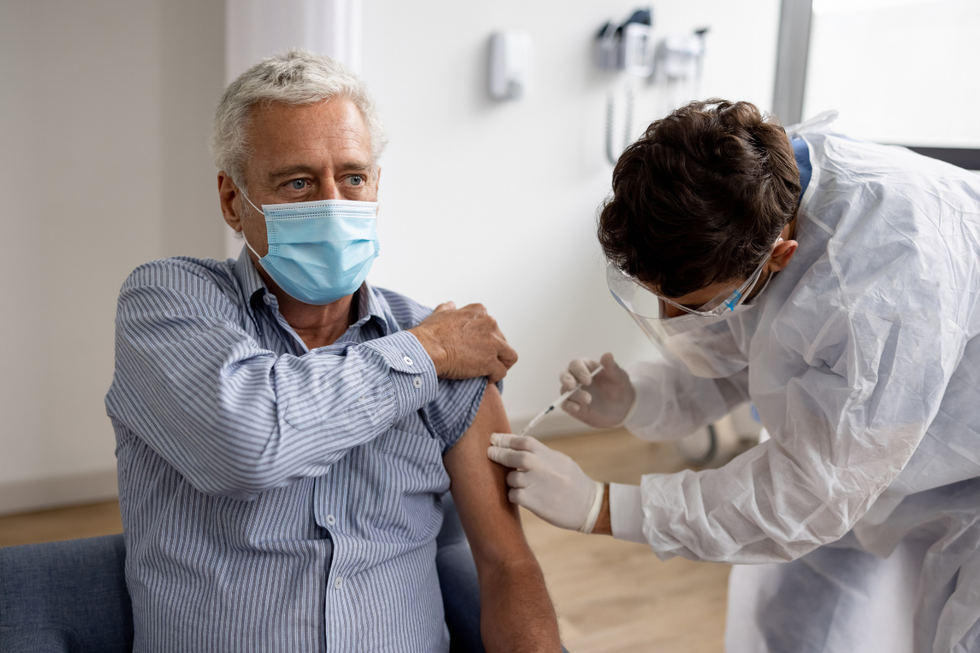Covid may speed up blood vessel ageing by 5 years and boost heart disease and stroke risk

WATCH NOW: ‘We Were Rubbished!’ Sir Richard Dearlove speaks to GB News' Christopher Hope on Covid Lab Leak Warnings
|GB NEWS
Even mild infections could increase risk of vascular ageing, scientists discovered
Don't Miss
Most Read
Latest
Five years on from the first lockdown, a slew of research has been conducted into the ins and outs of Covid, highlighting the lasting impact it can have on the human body.
Now, new research has shown that coronavirus infections can prematurely age blood vessels by approximately five years, potentially elevating the risk of cardiovascular complications, including strokes and heart attacks.
The findings, published in the European Heart Journal, indicate that even mild Covid cases result in increased arterial stiffness.
**ARE YOU READING THIS ON OUR APP? DOWNLOAD NOW FOR THE BEST GB NEWS EXPERIENCE**

Even mild cases could accelerate vascular ageing, particularly for women
|GETTY
Examining the ways in which the virus affected vascular health at all infection severities, scientists from Université Paris Cité found that Covid accelerates the natural ageing process of blood vessels, with worrying implications for long-term cardiovascular health.
The investigation involved 2,390 participants from 16 nations, including the UK, US, Australia and Brazil, recruited between September 2020 and February 2022.
Scientists then categorised subjects based on their Covid history: those never infected, patients with mild cases who avoided hospitalisation, individuals admitted to general wards, and those requiring intensive care.
Meanwhile, vascular age was determined using carotid-femoral pulse wave velocity measurements, which assess the speed of blood pressure waves travelling between neck and leg arteries. Higher readings indicate stiffer vessels and advanced vascular ageing.
Assessments were conducted at six and 12 months post-infection, with researchers accounting for demographic factors affecting cardiovascular health.
LATEST DEVELOPMENTS
Overall, women experienced significantly more severe vascular damage than men across all infection categories.
Female patients with mild Covid showed pulse wave velocity increases of 0.55 metres per second, while those hospitalised recorded 0.60 metres per second rises, and intensive care patients demonstrated 1.09 metres per second increases.
These measurements translate to clinically significant vascular ageing of approximately five years for a 60-year-old woman, correlating with a three per cent higher risk of cardiovascular disease.
Individuals experiencing long Covid symptoms, including breathlessness and exhaustion, showed greater arterial stiffening.
Vaccinated participants exhibited reduced vascular damage compared to unvaccinated individuals. Long-term observations suggested the accelerated ageing either stabilised or showed minor improvements over time.

Simple lifestyle changes and prescribed medication can combat high blood pressure
|GETTY
Professor Rosa Maria Bruno, who led the research, explained: "Since the pandemic, we have learned that many people who have had Covid are left with symptoms that can last for months or even years. However, we are still learning what's happening in the body to create these symptoms.
"One of the reasons for the difference between women and men could be differences in the function of the immune system.
"Women mount a more rapid and robust immune response, which can protect them from infection. However, this same response can also increase damage to blood vessels after the initial infection."
However, vascular ageing can be addressed, from simple lifestyle modifications to decrease blood pressure and cholesterol, as well as prescribed treatment.







